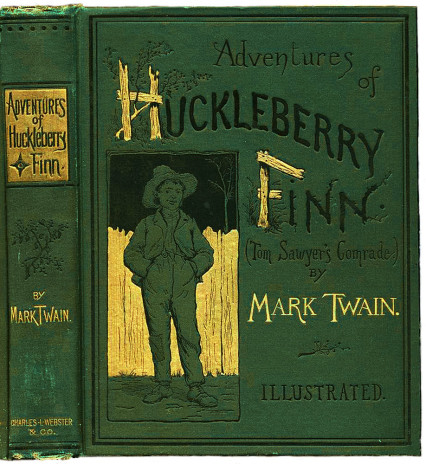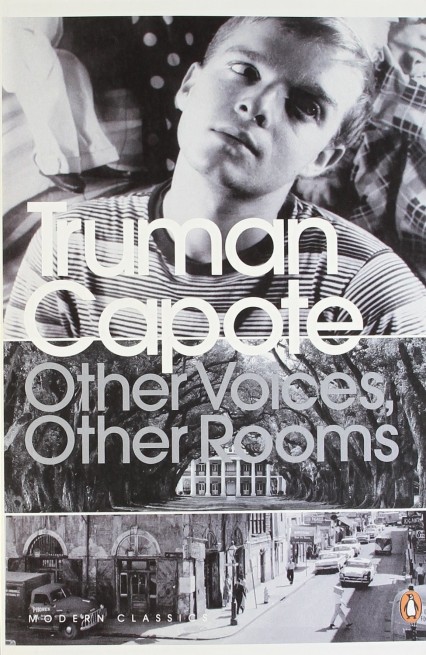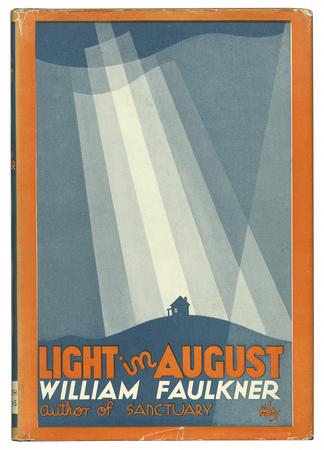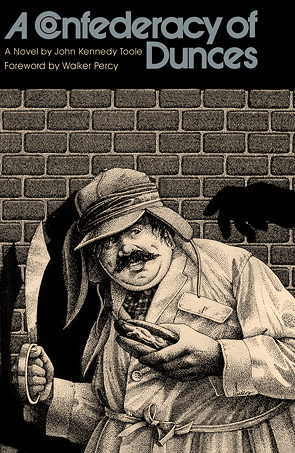Ten works of Southern literature to read with/ instead of Go Set a Watchman.
A month has passed since Harper Lee’s new/old novel Go Set a Watchman was released to much clamour worldwide. Controversy over its publication continues; did Harper Lee consent to Watchman’s release? And if she did, was it the right decision?
Reviews have been mixed – some appreciate an unexpected further insight into the work of a literary icon; others have given short shrift to Lee’s first attempt at what would eventually become To Kill a Mockingbird.
Some fans of that 1960 masterpiece are boycotting Watchman all together, amid revelations over Atticus Finch’s apparent change in character and a number of US bookshops are offering refunds, claiming Watchman’s marketing is ‘misleading.’ Lee’s novel, however remains at the top of The New York Times fiction bestseller list and a second print-run is already underway.
Whatever your feelings on the return visit to Harper Lee’s Maycomb, Southern literature’s rich treasure trove of delights has plenty more to offer. The Deep South has certainly proved fertile ground for literary talent, cultivating numerous Pulitzer Prize winners, and even a Nobel laureate.
Whether you’re dipping your toe into the mystical waters of the Mississippi for the first time, or are a return visitor to the land below the Mason-Dixon Line, here are a few suggestions to help you along the Southern literary trail.
The Adventures of Huckleberry Finn – Mark Twain
Not only a great Southern novel, Mark Twain’s seminal work is often cited as the greatest of all American novels. ‘All modern American literature comes from one book by Mark Twain called Huckleberry Finn,’ Ernest Hemingway famously declared in 1935. The story follows Huck as he helps runaway slave Jim to escape along the Mississippi River, and describes with a vibrancy still vivid over a century since its publication the colourful cast of characters they meet along the way. Through Twain’s trademark humour and biting satire the novel explores the complexities of the American condition, and attempts to address the central contradiction of racism and segregation in a country born to honour freedom and equality.
Other Voices, Other Rooms – Truman Capote
Harper Lee’s childhood next door neighbour penned his own coming of age tale, also set in a small Southern town. Published in 1948 when Capote was 23, Other Voices, Other Rooms sealed the author’s spot among the greats of the Southern-Gothic tradition. The novel tells the story of 13 year old Joel, who is sent to live with his seemingly absent father in a decaying and ghostly plantation house in Mississippi. Drawing heavily on his own upbringing in rural Alabama, Capote’s cast of curios features an exaggerated version of Harper Lee in the form of tomboy Idabel Thompkins, who’s wild, devil-may-care attitude delights. ‘“Son,” she said, and spit between her fingers, “what you’ve got in your britches is no news to me, and no concern of mine: hell, I’ve fooled around with nobody but boys since first grade. I never think like I’m a girl; you’ve got to remember that, or we can’t never be friends.”’
Crazy in Alabama – Mark Childress
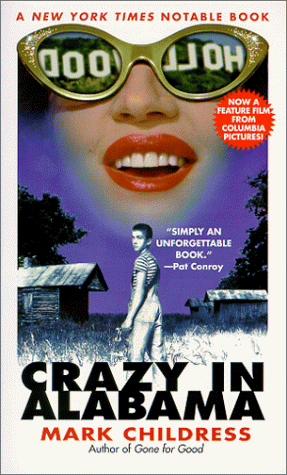 Like Lee and Capote, Childress also spent his formative years in Monroeville, Alabama (there must be something in the water there). Set during the summer of 1965, Crazy in Alabama deals with the social changes sweeping the South, seen through the eyes of 12 year old Peejoe Bullis who inadvertently finds himself right at the heart of the Civil Rights movement. Meanwhile his family, and the State police are attempting to track down his eccentric aunt Lucille, who is making her way to Hollywood to seek fame and fortune with her dead husband’s severed head concealed in a hatbox. Forget James Franco’s attempts at Faulkner; imagine Tarantino taking on Flannery O’Connor and you’re about half way there.
Like Lee and Capote, Childress also spent his formative years in Monroeville, Alabama (there must be something in the water there). Set during the summer of 1965, Crazy in Alabama deals with the social changes sweeping the South, seen through the eyes of 12 year old Peejoe Bullis who inadvertently finds himself right at the heart of the Civil Rights movement. Meanwhile his family, and the State police are attempting to track down his eccentric aunt Lucille, who is making her way to Hollywood to seek fame and fortune with her dead husband’s severed head concealed in a hatbox. Forget James Franco’s attempts at Faulkner; imagine Tarantino taking on Flannery O’Connor and you’re about half way there.
Wise Blood – Flannery O’Connor
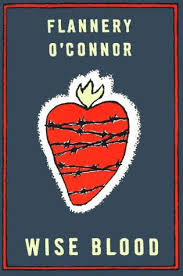 Speaking of the Georgia scribe, no list of Southern-greats would be complete without Mary Flannery O’Connor and her particular blend of the Gothic-grotesque. Her short story A Good Man is Hard to Find, considered among the greatest of the form, chills to the core. In Wise Blood, O’Connor’s first novel, we’re introduced to Hazel Moats, a spiritually disillusioned war veteran who establishes The Church Without Christ in an eccentric Southern town. Bearing the hallmarks of all O’Connor’s work, the story revolves around a group of wretched grotesques and the key themes of sin and redemption.
Speaking of the Georgia scribe, no list of Southern-greats would be complete without Mary Flannery O’Connor and her particular blend of the Gothic-grotesque. Her short story A Good Man is Hard to Find, considered among the greatest of the form, chills to the core. In Wise Blood, O’Connor’s first novel, we’re introduced to Hazel Moats, a spiritually disillusioned war veteran who establishes The Church Without Christ in an eccentric Southern town. Bearing the hallmarks of all O’Connor’s work, the story revolves around a group of wretched grotesques and the key themes of sin and redemption.
The Heart is Lonely Hunter – Carson McCullers
 Carson McCullers’ debut novel is a brutally honest examination of isolation and loneliness. Set during the Depression-era South, a small mill-town’s inhabitants struggle with the varying constraints of poverty, class, race and gender. The inequalities faced by each a microcosm of the huge political changes taking place across a world on the verge of the Second World War. Despite her young age at the time of publication, McCullers, like Capote was 23 at the time of her debut, her most famous novel offers an unflinching account of our search for human connection, of that desire and need to be loved and understood.
Carson McCullers’ debut novel is a brutally honest examination of isolation and loneliness. Set during the Depression-era South, a small mill-town’s inhabitants struggle with the varying constraints of poverty, class, race and gender. The inequalities faced by each a microcosm of the huge political changes taking place across a world on the verge of the Second World War. Despite her young age at the time of publication, McCullers, like Capote was 23 at the time of her debut, her most famous novel offers an unflinching account of our search for human connection, of that desire and need to be loved and understood.
Delta Wedding – Eudora Welty
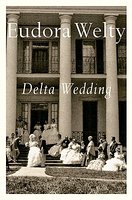 The grande-dame of Southern letters, Welty’s work won her a Pulitzer, the Presidential Medal of Freedom and the accolade of being the first living author published by the esteemed Library of America collection. Unlike the dark, Gothic nature that haunts so many of her contemporaries’ work, Delta Wedding is concerned with the ordinary; with the daily comings and goings of a Southern family as they prepare for a wedding on their Mississippi Delta plantation. Welty captures everyday life with wry wit, a hawk’s eye observation of detail and an unrivalled ear for the lilts and lulls of the many dialects of the Southern states.
The grande-dame of Southern letters, Welty’s work won her a Pulitzer, the Presidential Medal of Freedom and the accolade of being the first living author published by the esteemed Library of America collection. Unlike the dark, Gothic nature that haunts so many of her contemporaries’ work, Delta Wedding is concerned with the ordinary; with the daily comings and goings of a Southern family as they prepare for a wedding on their Mississippi Delta plantation. Welty captures everyday life with wry wit, a hawk’s eye observation of detail and an unrivalled ear for the lilts and lulls of the many dialects of the Southern states.
Light in August – William Faulkner
Considered to be among Faulkner’s greatest work (‘great’ not being using lightly, a two-time Pulitzer Prize winner, the oft-cited doyen of Southern storytelling received a Nobel Prize for his services to literature), Light in August is possibly the author’s most obvious comment on the South’s difficult racial history, and explores his central theme – the nature of evil. The novel is made up of three inter-connecting stories, each about the search for identity and belonging in Faulkner’s brooding, often mortally dangerous and dark depiction of the Deep South.
A Confederacy of Dunces – John Kennedy Toole
JK Toole’s masterpiece tells the tale of 30 year old Ignatius J Reilly; an overweight, work-shy, self-styled intellectual who still lives with his mother in his childhood home in New Orleans. Hailed by many critics as the most accurate depiction of the Big Easy in a work of fiction, the wild characters encountered by Ignatius as he makes his rounds with his hot dog cart through the city’s French Quarter, burst from the page. The real-life drama behind the book is just as compelling; bereft of literary success, Toole took his own life on a lonely Mississippi backroad in 1969. 12 years later, after his mother had convinced acclaimed author Walker Percy to take a punt on her son’s manuscript, A Confederacy of Dunces won the Pulitzer Prize for fiction.
Beloved – Toni Morrison
 Though technically not a Southern author, Morrison’s Pulitzer Prize winning depiction of the deeply disturbing psychological aftermath of slavery following the Civil War is rooted firmly in the Southern tradition. Though now ‘free’ and living in the American Midwest, former slave Sethe is haunted not only by her nightmarish past but by a destructive, angry ghost, believed to be that of her dead baby.
Though technically not a Southern author, Morrison’s Pulitzer Prize winning depiction of the deeply disturbing psychological aftermath of slavery following the Civil War is rooted firmly in the Southern tradition. Though now ‘free’ and living in the American Midwest, former slave Sethe is haunted not only by her nightmarish past but by a destructive, angry ghost, believed to be that of her dead baby.
Gods in Alabama – Joshilyn Jackson
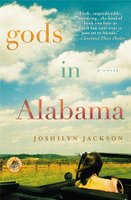 Jackson’s debut novel is packed full with the essentials of Southern fiction: a brooding family secret, exile, isolation, hope and redemption. Twenty-something Arlene is forced to return home to her native Alabama to confront the secret that she’s hidden from her family since her teens. With her black attorney boyfriend in tow, the novel is also a look at life in the South of the 21st Century, a place often still dealing with the complexities of its past.
Jackson’s debut novel is packed full with the essentials of Southern fiction: a brooding family secret, exile, isolation, hope and redemption. Twenty-something Arlene is forced to return home to her native Alabama to confront the secret that she’s hidden from her family since her teens. With her black attorney boyfriend in tow, the novel is also a look at life in the South of the 21st Century, a place often still dealing with the complexities of its past.
For further recommendations see our friends over at Deep South Magazine’s Summer Reading List and catch up with what our writers are reading this summer here.


